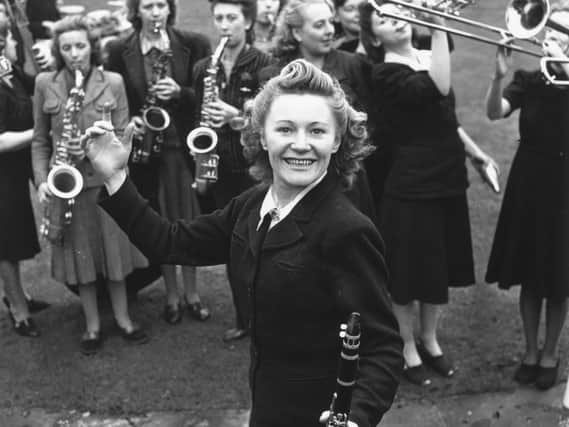A to Z of Leeds: Ivy Benson - Leeds's own pioneer of 'girl power'


There are many reasons for this bold claim, from the people who've called this place home, to the history of the region, the developments underway and the talent and creativity we see on a daily basis. Here, we go through the alphabet to give you some reasons to be proud.
B IS FOR BENSON, AS IN IVY BENSON
Musician and bandleader Ivy Benson was the pioneer of ‘girl power’. The Leeds-born lass was one of the first entertainers to enter Germany at the end of the Second World War, at the request of Field Marshall Montgomery.
Advertisement
Hide AdAdvertisement
Hide AdShe played at the 1948 Olympic Games, across the Middle East and in Vietnam. She was the darling of national TV and radio and played her last gig in 1980.
She was born at the Malt Shovel Inn, Holbeck on November 11, 1913. Her father, Douglas, played with the Leeds Symphony Orchestra and Empire Pit Orchestra.
Ivy had a very musical upbringing. She learned the piano at three and won a singing contest at the former Empire Theatre aged nine, with a rendition of Yes, We Have No Bananas. She learned the clarinet and saved half a crown a week while working at Montague Burton’s tailoring factory so she could buy her first saxophone.
She had earlier signed with Edna Croudfoot’s Rhythm Girls but in 1941 struck out on her own and formed the Ivy Benson All Girl Orchestra. Some 500 girls passed under her baton, performing the be-hop, jitterbug, jive and samba.
Advertisement
Hide AdAdvertisement
Hide AdSuch was the drop-out rate, owing to girls marrying GIs, she had to keep six in reserve at any one time. She once lamented: “What is really awful is they don’t last long. The marriage rate is that high. I lost seven in one year to America. Only the other week a girl slipped away from the stage. I thought she was going to the lavatory but she went off with a GI. Nobody’s seen her since.”
However, that wasn’t her only problem. After Jack Hylton secured Benson a radio booking for the BBC in January 1943, jealous male bandleaders held a council of war to plot her downfall. They went to extraordinary lengths, even getting musical arrangers to deliberately insert wrong notes in the girls’ scores. Male bandleaders also sent a petition to the BBC. But Ivy’s popularity won through.
Her life inspired a film, Last of the Blonde Bombshells. She once said: “I’ve sacrificed two marriages, had four major operations, I sometimes ask myself why I do it. I’m sure I’ll die penniless. But I don’t care.”
She died aged 79 in May 1993 at Clacton-on-Sea in Essex.
***********************
A message from the Editor:
Leeds has a fantastic story to tell - and the Yorkshire Evening Post has been rooted firmly at the heart of telling the stories of our city since 1890. We believe in ourselves and hope you believe in us too. We need your support to help ensure we can continue to be at the heart of life in Leeds.
Advertisement
Hide AdAdvertisement
Hide AdSubscribe to our website and enjoy unlimited access to local news and information online and on our app. With a digital subscription, you can read more than 5 articles, see fewer ads, enjoy faster load times, and get access to exclusive newsletters and content. Click here to subscribe. For more details on our newspaper subscription offers click here.
Thank you
Laura Collins
Comment Guidelines
National World encourages reader discussion on our stories. User feedback, insights and back-and-forth exchanges add a rich layer of context to reporting. Please review our Community Guidelines before commenting.